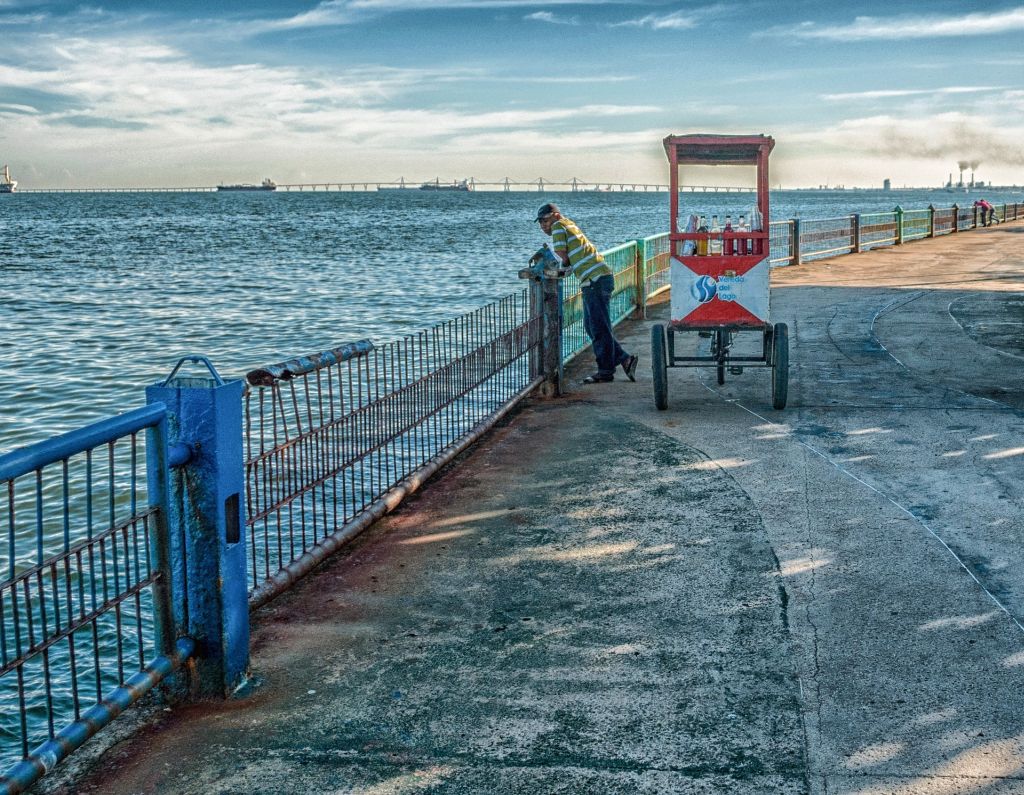Venezuela’s oil industry returns to the world market
The country’s government has promised the opposition clean elections for 2024. In return, the U.S. wants to gradually ease its sanctions. It is uncertain whether President Maduro will keep his side of the bargain.
by Alexander Busch, Latin America correspondent for Handelsblatt and Neue Zürcher Zeitung
Finally, some good news from Venezuela: The U.S. Treasury Department announced on Thursday that the previously banned trade in oil from the Venezuelan state oil company PDVSA is now permitted again.
Foreign companies are allowed to act as suppliers to the state-owned company in Venezuela’s oil sector without having to fear sanctions from the U.S. authorities. Financial transactions, such as trading in Venezuelan government bonds, are also permitted, as is the insurance of tankers carrying Venezuelan oil. Trading in Venezuelan gold is also permitted with immediate effect.
In a first step, these permits will initially be valid until mid-April 2024. This is the first time the U.S. administration has softened the sanctions against Venezuela, which have been in place for four years. In 2019, U.S. President Donald Trump had imposed tough sanctions on Venezuela because the regime of Nicolás Maduro had previously apparently rigged elections.
But now, after several rounds of secret negotiations with the U.S., the government in Caracas has pledged to hold clean elections in the second half of 2024. It pledged to do so in a joint declaration signed by the opposition and government representatives in Barbados on Tuesday of this week.
The government wants to allow foreign election observers. Whether it will actually allow opposition candidates to participate in the elections remains to be seen. The judiciary has stripped the main opposition leaders of their right to stand for election. The U.S. government has made clear that it expects progress on allowing opposition candidates to run by November. The sanctions relief can be lifted at any time.
The background to the rapprochement between the USA and Venezuela is the high oil prices. For strategic reasons, the USA wants the country with the world’s largest oil and gas reserves to supply the world market again. This will only be possible slowly because Venezuela has not invested in the oil industry for many years. Venezuela could soon export an additional 200,000 barrels a day.
The agreement is beneficial for all sides: Venezuela’s economy will get a boost in growth and investment from the lifted sanctions. For the first time, private companies will be able to invest legally in the Caribbean country again.
This is also interesting for German companies, which have traditionally been strong in Venezuela, but had withdrawn in recent years due to the country’s severe crisis.
The government, in turn, will be able to sell oil without the usual discount. Until now, customers such as China and India have demanded a discount on Venezuelan oil of up to 40 percent on the world market price. Traders and importers are thus compensating themselves for the risk of being caught in the crosshairs of the US judiciary.
Finally, the opposition would have the chance for fair elections, which it has largely been denied in the ten years Maduro has now been in power. It is to be hoped that the easing of sanctions can trigger a political momentum in addition to an economic one.
Because so far Maduro has never really shown any willingness to reach out to the opposition. It is hard to imagine that the autocrat would allow free elections with fair starting chances for all if there were a risk that he would be voted out of office.
Whether the regime is actually willing to give the opposition more room to maneuver will be seen next Sunday. The latter has called for nationwide primaries. The government had previously eliminated the electoral court by tactically withdrawing its judges because of the lack of a quorum.
The opposition faces the logistical challenge of organizing primaries in a country the size of France and Germany combined, without being able to use public buildings or otherwise count on government support. Given the constant intimidation and threats from the security forces, it takes a great deal of personal courage to participate in the electoral act.









